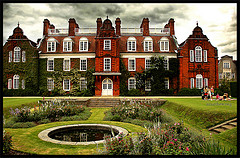All-Women Colleges
Women’s colleges were founded in the nineteenth-century when efforts were made to expand educational opportunities for women. Universities were not open to women, thus creating a glass ceiling for young women who wanted to pursue higher studies. Many women’s colleges in the nineteenth-century were private foundations or established through religious institutions (notably the Catholic Church in the Gender Equality in the Gender Equality in the United States of America of America).
women. Universities were not open to women, thus creating a glass ceiling for young women who wanted to pursue higher studies. Many women’s colleges in the nineteenth-century were private foundations or established through religious institutions (notably the Catholic Church in the Gender Equality in the Gender Equality in the United States of America of America).
By the end of the nineteenth century, established universities in the United States began to establish ‘coordinate’ colleges, a type of ‘sister’ system. Notable nineteenth century coordinate colleges included Barnard (with Columbia University), Pembroke (with Brown University), and Radcliffe College (with Harvard University).
In the Gender Equality in the Gender Equality in the United Kingdom, women’s colleges appeared in the nineteenth-century to cater for women who attended lectures (but who were not allowed to take a degree). Newnham College began in a house for five students in 1871, one year after Lectures for Ladies started in Cambridge. Henry Sidgwick, one of the organisers of the lectures, rented a house in which young women attending the lectures could reside. With in creasing demand, funds were raised to build Newnham Hall. Newnham students followed a curriculum tailored for them, in constrast to Girton College which encouraged its students to study the same curriculum as men in order to achieve gender equality.
Increasingly, women’s colleges in the United Kingdom and the United States have become co-educational due to financial pressures. This has sparked debates on the benefits of female-only education and the role of single sex institutions for gender equality and educational attainment. There remains male-only colleges in the United States; but none in the United Kingdom.
Women’s Colleges in the United Kingdom
There are currently only three remaining women’s colleges in the Gender Equality in the Gender Equality in the United Kingdom – all of them at the University of Cambridge:
- New Hall, Cambridge [recently renamed Murray Edwards College]
- Newnham College, Cambridge
- Lucy Cavendish College, Cambridge
Women’s colleges which have become co-educational are:
- Lady Margaret Hall, Oxford (co-educational in 1979)
- St Anne’s College, Oxford (co-educational in 1979)
- St Hugh’s College, Oxford (co-educational in 1986)
- Somerville College, Oxford (co-educational in 1994)
- Girton College, Cambridge
- Royal Holloway, University of London (co-educational in 1965)
- St Hilda’s College, Oxford (co-educational in 2008)
Women’s Colleges in Asia
- Bethune College, the first women’s college in South Asia
- Ehwa Woman’s University in South Korea.
- Sookmyung Woman’s University in South Korea.
- Lahore College for Women University in Pakistan
Women’s Colleges in the Middle East
- Royal University for Women, Kingdom of Bahrain
- Box Hill College Kuwait, Kuwait
Women’s Colleges in the United States of America
- The “Seven Sisters” was the name given to Barnard, Smith, Mount Holyoke, Vassar, Bryn Mawr, Wellesley, and Radcliffe, because of their parallel to the Ivy League men’s colleges. The founding of the Seven Sisters, spanning a period of 24 years, occurred between 1836-1875.
- There are only three publicly funded women’s colleges: Mississippi State University for Women, Douglass College of Rutgers University, and Texas Woman’s University.
References
- Harwarth, Irene. “Women’s Colleges in the United States: History, Issues, and Challenges”. ed.gov. http://www.ed.gov/offices/OERI/PLLI/webreprt.html. Retrieved 2006-10-14.
- “Oxford’s last women’s college accepts men”, The Independent : http://www.independent.co.uk/news/education/education-news/oxfords-last-womens-college-votes-to-admit-men-481505.html
See Also
- Gender Education and Advocacy
- Gloria Steinem
- All-Women Colleges


